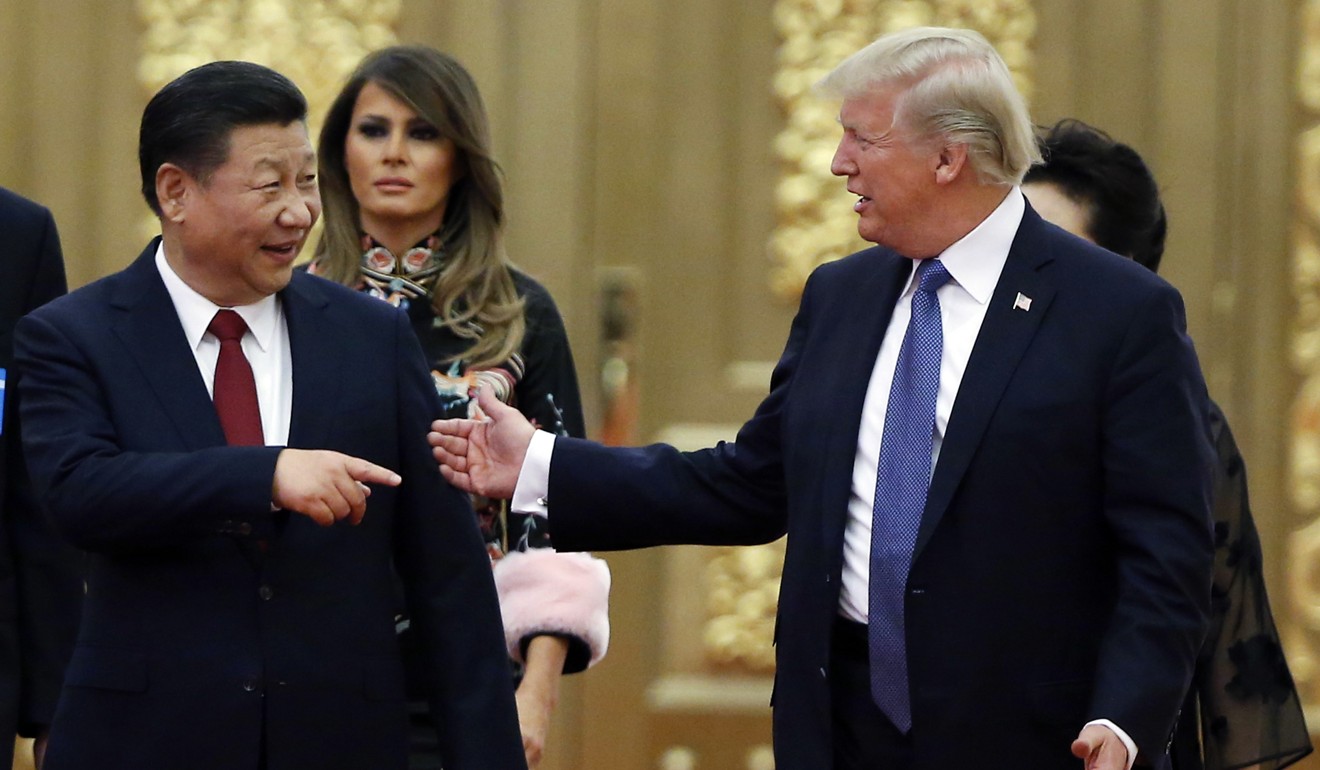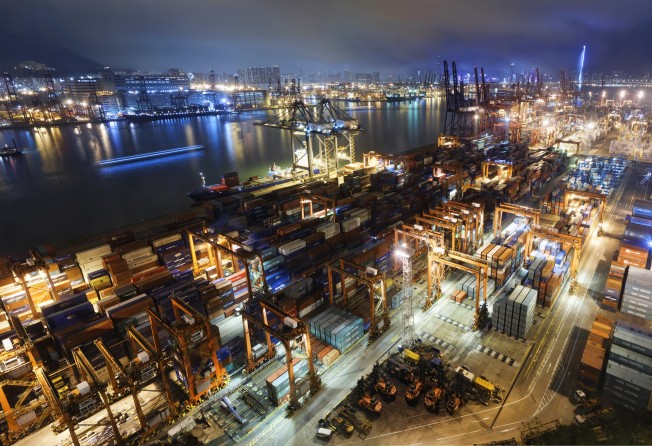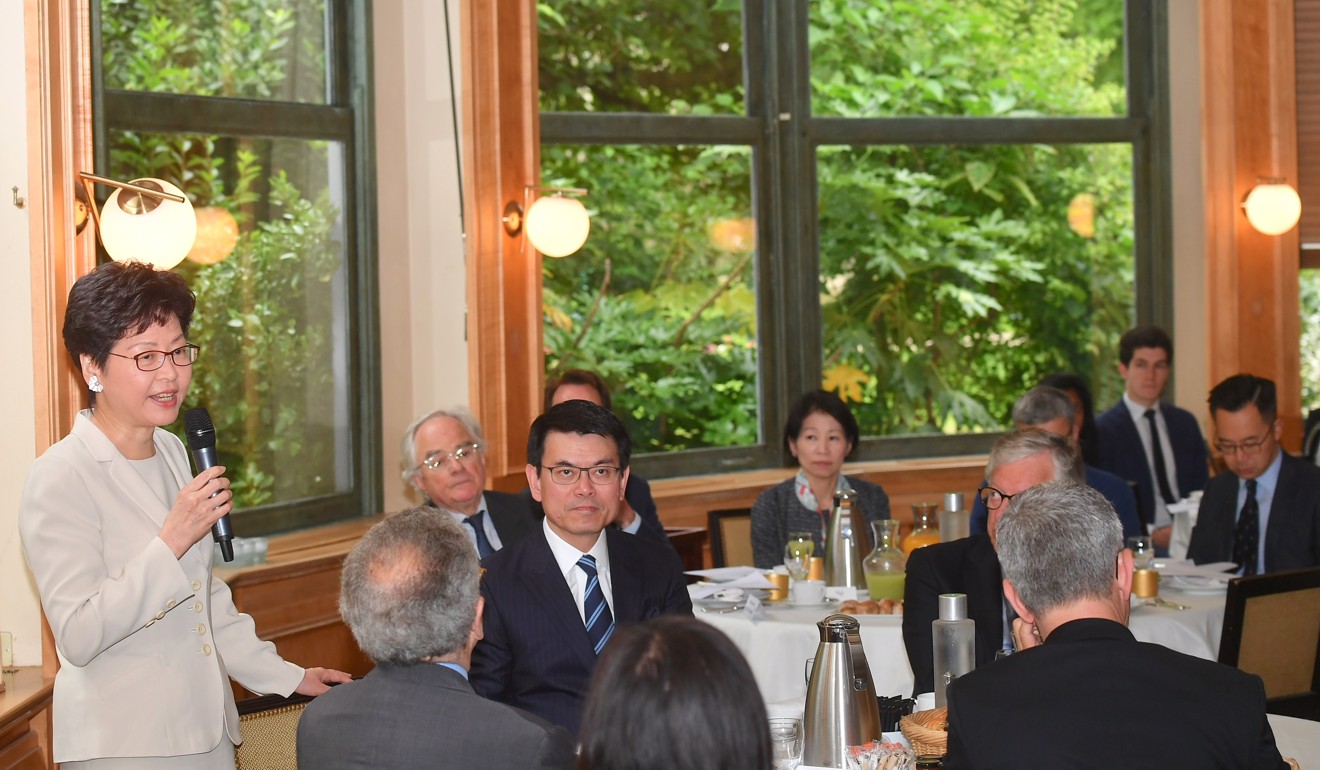
Downward spiral of US-China trade spat will hurt Hong Kong, commerce chief Edward Yau warns
Hong Kong also faces ‘unquantifiable impact from spillover’ of the dispute between the US and Europe, Yau says

The effects of the escalating US-China trade row could spiral down and hurt Hong Kong, the city’s commerce chief has warned.
Edward Yau Tang-wah, travelling with Chief Executive Carrie Lam Cheng Yuet-ngor on a business tour in Europe, said in a phone interview on Tuesday night that about 17 per cent, or HK$60 billion (US$7.6 billion) worth, of Chinese exports in question passed through the city to the United States, and about 9 per cent, or HK$6 billion, of US exports went to mainland China via the city.
Hong Kong also faced an “unquantifiable impact from the spillover” of the dispute between the US and Europe, which could trigger trade to divert from Hong Kong, he said.

Beijing and Washington are embroiled in a tit-for-tat trade row, with China on Tuesday vowing to use quantitative and qualitative measures to hit back if US President Donald Trump’s threat to impose a 10 per cent punitive tariff on US$200 billion worth of Chinese products went ahead.
“We are worried about the worsening Sino-US trade dispute, and it is a pity to see that the goodwill the two countries built over the years is being lost,” Yau said from Paris.
“We fear that the trade war will become an irreversible step as each side only cares about its own interests.”
When Trump announced plans on Friday to impose 25 per cent tariffs on US$50 billion worth of Chinese imports, Beijing responded by publishing a list of US products – ranging from soybeans to cars – that it would subject to retaliatory measures of the “same scale and intensity”.
The problem for Beijing, however, is that by raising the tariff stakes on US$200 billion worth of products, Trump has put any like-for-like retaliatory move out of China’s reach, as it simply does not buy that amount of American goods.
By Beijing’s own calculations, the value of US product imports last year was US$154 billion.
Tara Joseph, president of the American Chamber of Commerce in Hong Kong (AmCham), said she expected the turbulence arising from the tit-for-tat trade dispute would prevail, and businesses should brace themselves.
“There is a common concern on what the impact of the trade frictions will have on the global economy,” she said. “The impact is not unique to Hong Kong.”
Areas most affected were for example the global supply chain, stock markets and agricultural sectors, Joseph said.
“Hong Kong can withstand the tariff tsunami if it continues to develop its regional relationships and Greater Bay Area and advancing on IT development,” she said, referring to Beijing’s plan to develop Hong Kong, Macau and nine cities in Guangdong into a new economic zone and IT-led powerhouse rivalling Silicon Valley in the US.
Citing a recent AmCham survey, Joseph said many members polled were looking for business opportunities on the mainland and in Southeast Asia.
According to the Hong Kong government’s trade figures, Asean became the city’s second-largest trade partner after the mainland last year in total trade. The Association of Southeast Asian Nations is an economic bloc comprising Indonesia, Malaysia, Singapore, the Philippines, Thailand, Brunei, Cambodia, Laos, Myanmar and Vietnam.

Federation of Hong Kong Industries chairman Jimmy Kwok Chun-wah said Hong Kong companies in the re-export and transshipment business would be hit hardest.
“The trade war has spread to food such as meat and fish, which to some extent will put them in trouble,” Kwok said.
Yau said the bureau met with business chambers on Tuesday to explain the quantitative impact on Hong Kong arising from the trade war.
On news of the worsening trade war, the Hong Kong stock market slumped to its lowest in four months, with the benchmark Hang Seng Index dropping about 1,000 points, before closing 841 points lower at 29,468 on Tuesday.
The index traded flat on Wednesday morning, hovering 14 points higher at 29,487 by 10.44am.